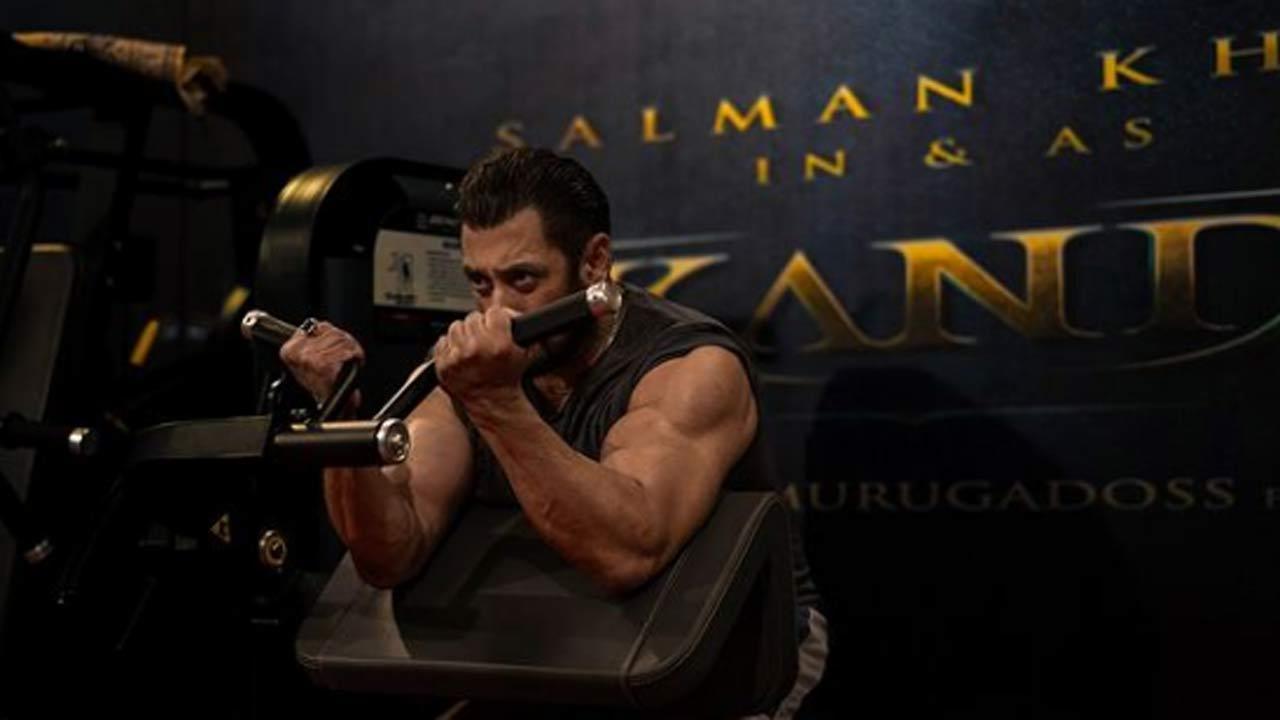It’s a sultry afternoon in rural Essex and Carla Denyer, the co-leader of the Green Party of England and Wales, is hip-high in a field of wild grass. There’s the mellow hum of insects, the scold of a blue tit, the earthy balm of nearby woodland. We pause to admire the flowers – meadowsweet, cow parsley, yarrow.
I ask what a tall purple flower is called. “Don’t know,” says the 39-year-old. Actually, she doesn’t know the names of any of them.

“Except that one. That’s an oxeye daisy.” Just because she is a Green, she says, don’t assume she can name all the plants.
Or the trees. Or the birds. Don’t assume that she was the sort of kid to make ant farms or raise money for rhinos, either.
She didn’t even have pets (“Oh, except fish. My dad had a fish tank”). She describes herself less as a conservationist, more as a scientist.
She was an engineer in renewable energy before “sidestepping” into politics. What’s more, “Mine is not an uncommon route. There are a lot of scientists and engineers in the Green Party.
” With that, she’s happy to admit to being a hay fever sufferer. And she didn’t hesitate to reveal that it was a bumblebee, of all things, that landed her in A&E the day before the state opening of Parliament in July. Her message is this: the Green Party in 2024 is not just about cycling and recycling, beards and badges, protests and plant-based everything.
“We’ve never only been about the environment. Or only been a pressure group,” she says, adding that it was their own comms failure that meant people often saw them as that. “We are about making this country fairer, as well as greener.
” Whatever your prior knowledge or understanding of the Greens, you can’t fail to have noticed their cut-through at the general election. They outperformed all expectations, winning 1.84 million votes, a 6.
4 per cent share. Whether that was the power of their messaging, the ineptitude of the Conservatives or Labour’s sudden policy anaemia, the number of Green MPs went from one to four overnight. Denyer heard she’d won Bristol Central from Labour in a school hall and her first reaction was to feel “rather queasy”.
Over in East Anglia, Adrian Ramsay, with whom she has co-led since 2021, was taking Waveney Valley. Elsewhere, the Greens celebrated second place in 40 constituencies. Of votes cast by 18 to 24-year-olds, the Greens won 18 per cent, according to YouGov – that’s a fair chunk of Labour’s base.
Their dramatic change in fortunes was in no small part down to Denyer’s TV appearances – she’s acutely aware of that fact. She is aware, too, that Reform UK leader and new MP Nigel Farage has been riding his exposure in newspapers and television for years, whereas the Greens have often struggled to generate similar levels of coverage. “And we have 80 times more councillors than Reform.
Eight. Zero.” So when broadcasters began their election coverage this summer, she seized her moment.
You couldn’t miss her in the first debate: snooker-green jacket, neat crop, shiny hoops. She upbraided Angela Rayner and Penny Mordaunt – questioning whether their squabbling was “terribly dignified” after BBC moderator Mishal Husain had to intervene for the umpteenth time – and the audience erupted. Finally, here was someone expressing everyday impatience amid a long-running carnival of political cartoonery.
When she stepped off the box they’d placed behind the podium to elevate her 5ft 1in to something closer to Rayner’s 5ft 10in, she walked out of the TV studio, into the streets and found everyone knew her name. She was being stopped “every few minutes” in towns across the country. People wanted selfies, to shake her hand, to thank her personally.
Not just students, either: minimum-wage workers like the woman starting her shift at a Brighton hotel, who gripped her in a giant hug. Here was Labour’s traditional base turning – literally – to the Greens. “This is a good sign,” she remembers thinking.
Day after day in Bristol, where she’s lived since 2009, she listened to frustrations with Labour on the doorstep: there was palpable anger over Keir Starmer’s U-turn on a promised £28 billion a year to fight climate change, disbelief over his reluctance to call for a ceasefire in Gaza . Yet, Labour remained stubbornly ahead in the polls. Only on the eve of the election did Starmer do something that still makes Denyer shake her head in astonishment.
He announced that there were no circumstances in which he would reverse Brexit within his lifetime. His lifetime! If nothing else, that swung it. Denyer took almost 57 per cent of the vote; Labour trailed on 32.
6 per cent. Today, Denyer is barefoot in a Jane Norman geometric print dress, a charity shop find, scraping her spoon in a pot of a vegan chocolate mousse after her Vogue portraits. We’re in the eco-house used for the shoot, a conservation development on the greenbelt by architect Scott Kyson, who converted an abandoned Atcost hay barn into an elegant home.
I ask how life has changed since her win and she says she’s barely drawn breath. The Commons experience has been intense: as well as orienting herself in the neo-Gothic building, she’s been recruiting staff, finding a London flat, as well as doing the job, “giving speeches, submitting motions and amendments, working with colleagues”. It’s a big step up from campaigning.
But, if anything, her ambition is fiercer. One of her first points, as we sit on Japandi chairs in the minimalist dining room, is that if we had proportional representation the Greens would have 42 MPs. “There’s only one other country in Europe that has such an unfair voting system: Belarus.
Hardly a club that we want to be part of.” She makes no secret of having eyed up the seven Labour MPs who, on 23 July, were suspended from the parliamentary party for six months for voting to end the Tories’ two-child benefit cap (which prevents almost all parents claiming child tax credit or universal credit on a third or more children). “I’m not going to push them,” she says, but yes, she did text each one personally to express solidarity and yes, the Green door is always open.
How does she feel about Jeremy Corbyn, now an independent? “There are areas where we overlap.” What about Starmer? “Um..
.” She leaves a significant pause while she licks her spoon. “He’s U-turned an awful lot.
” Particularly irritating to her was Labour’s abandoning of a project to reopen local railways – announced the week we’ve met – “which was good for improving the sustainability of our transport from an environmental point of view, but it’s also really good for our economy”. They’ve also bungled housing, she argues, because private companies building luxury developments on the green belt doesn’t meet local needs. “The housing crisis is an affordability crisis,” she says.
What the Greens would do is this: buy back council stock from the private market; give councils first dibs on certain private properties (such as those sold by landlords); introduce rent controls “in areas where they’re spiralling out of all relation to income”. While Starmer’s drift to the right, as she sees it, has benefited the Greens, Denyer says they attract voters across the spectrum. “You might assume that it was all environment, but many support our other policies, such as drug reform or being anti-austerity, being pro public ownership of public services.
” They won roughly equal numbers of seats from Labour and Conservatives in local elections and Denyer was careful to distance the party from disruptive climate activism so as not to put off staid conservationist types who wanted someone to tackle the sewage crisis. She had a good line on Just Stop Oil: she supported their right to protest, but some of their choices had been – and here she deployed her sensible voice – “unhelpful”. All this pragmatism prompts me to ask whether she could conceive – given they, too, are lobbying to put an end to a first-past-the-post electoral system – of breaching the divide to work with Reform? “I am not clear whether Nigel Farage supports proportional representation because he thinks it’s fair for the country or to benefit his party,” she says, a little testily.
“But,” she continues, sighing, as if not wanting to go on and yet having to, “there might be a situation where we both sign the same amendment.” So would she ever want the top job? “While I’m not chomping at the bit to be prime minister, I can imagine a future where that seems like the most useful thing I can do to contribute to making the country a fairer, greener place.” Earlier, I’d watched photographer Adama Jalloh shoot Denyer in the garden surrounding the eco-barn.
She was engaged, professional, her movements brisk. Just before they wrapped, there was a forgivable moment in the wilting heat when Denyer failed to stifle a yawn. It was the most she laughed all day, as if for one moment she’d broken character and a sort of delighted sprite had shone through.
Afterwards she ate lunch in self-contained silence, checking messages while the rest of us chattered. Offered water from a plastic bottle, she said, “I’d sooner have tap, if that’s OK.” I put down as nerves her tendency to overexplain parliamentary process and reel off rehearsed lines.
Sometimes new politicians treat profile writers like combative radio presenters. Although she won’t say whether she has a partner, she defines herself as “bisexual, queer, pansexual” and is, as far as she’s aware, the first MP to introduce her maiden speech using her pronouns. It’s important to see diversity in Parliament, “First, so that people can see themselves represented; second, because it leads to better decision-making.
” Actually, one of her first actions as an MP was to write to health secretary Wes Streeting, expressing her extreme disappointment that Labour was maintaining the ban on puberty blockers for under-18s. With fellow Green MP Siân Berry, she accused him of failing to engage with trans people and of failing to provide any funding for trans healthcare. “Trans young people need support, not to have their healthcare used as a political football,” she added in an Instagram post.
Denyer grew up in Fleet, Hampshire. She’s coy about her background, offering a happy, hazy sketch of childhood in a well-run middle-class home, “comfortable, but not particularly luxurious”. Her father John Denyer’s Facebook profile has him grinning in the cockpit of the plane he’s flying.
He describes himself as a physicist, musician, lover of skiing and sailing. On LinkedIn, he’s listed as the master elect of the decidedly un-green The Honourable Company of Air Pilots, a City of London livery company. For 22 years he worked for the Ministry of Defence, including in Washington, DC, and then for the privatised defence firm QinetiQ.
He married Margaret Cooksley, also a scientist, in 1977. When Carla appeared in 1985, Margaret quit work and threw herself into volunteering and the parent-teacher association. They divorced when Carla was 10.
“Conscientious” was a high-frequency word in her school reports. She swam competitively, was a fan of Doctor Who and Tomorrow’s World . Politics? “Not on my radar.
I was definitely not one of those, like Liz Truss, who always wanted to be prime minister.” At sixth form in the early 2000s, Denyer came into her own. She was what they called “a greebo”: long hair, baggy jeans.
“Lots of bracelets, that kind of aesthetic. Like a proto-emo.” Despite five A levels (maths, further maths, physics, philosophy; she eventually dropped graphic design), she was a keen interschool debater and activist, successfully lobbying her school to sell only fair-trade goods.
“I guess campaigning on workers’ rights is how you would describe it.” Durham University, where she studied mechanical engineering, was horizon-broadening. “I was still a little edgy,” she says, “alternative, I guess, in the way I dressed.
I bought – and still do – a lot of my clothes second-hand.” Two flatmates ran club nights, “So I’d go straight from the engineering department, stick my laptop behind the DJ booth and dance for a few hours.” She was also her college rowing cox, “because I’m short and mouthy”.
Elsewhere, she tried green woodworking. Her efforts – a fruit basket, spoons and spatulas – are still in use in her Bristol flat. Two things happened the summer before finals: she took a “taster” run by the Royal Academy of Engineering on working in renewables; and she read The Rough Guide to Climate Change , which she bought in a bookshop in Dublin.
She realised that climate “wasn’t just an issue, it is probably the biggest threat facing humanity”. She says, “That was the point where it immediately became self-evident that I was going to commit my life to tackling it.” After graduation, she followed a job offer in renewable energy and moved to Bristol, consoling herself with the fact that it had a great music scene even if she knew no one.
Now she loves the city, the like-minded people, their values. Often, she speaks of them as one: “I, like a lot of people in Bristol, was initially willing to give him a chance,” she says of Starmer. She found a flat near a bus stop because she doesn’t drive.
“Although,” she hastens to add, “it’s not compulsory to be without a car, or be vegan, or whatever, if you’re a Green.” It isn’t? “No.” And this is the heart of Denyer’s argument.
While individuals have a role to play, we are never going to get to net zero, or reverse the decline in biodiversity in nature, with well-meaning people changing their behaviour alone. So while she personally hasn’t set foot in a plane since 2009, when she visited a friend in West Africa, and while she buys vintage, recycles and avoids plastic at all costs, she’s not going to demonise you if you don’t. Where you can make a difference, she says, is by voting to change the way we live.
This was her epiphany. She was working for the renewable energy consultancy GL Garrad Hassan when she thought: actually, the technology needed to get to net zero is pretty much there. That’s not the problem.
The problem is those in power. Because those contributing most to climate change – polluting companies, for example – were not being asked to shoulder the burden, whereas those contributing least – on low incomes – were being asked to pay to reinsulate their homes or drive cleaner cars and so on. She realised that we would only get to net zero if a change in policy meant the greenest thing was also the cheapest, the most convenient, the most accessible.
She realised she needed to get into politics and change the system. In terms of fashion, this has meant lobbying for “a ban on incinerating or landfilling any unsold stock that could be reused or recycled” – which luxury brands were caught doing in 2018 – “and making fashion retailers take responsibility for the waste they create”. It means signing the Say No to Shein petition to block the Chinese online fast fashion retailer’s IPO listing in the UK because, “Its exploitation of workers, the environmental harm and tax avoidance are, to me, a clear-cut case – a business that so brazenly uses those tactics should not be listing on the London Stock Exchange.
” So she became a Green councillor in 2015, and then on and on and on. “That will be a key theme as long as I’m an MP,” she says, aware of the groundswell around her. “Pushing the government to go faster in tackling climate change, but making sure we do it in a fair way.
” Cover look: Organic cotton sateen shirt and organic cotton trousers, Maria McManus. Mary Janes, Le Monde Beryl. Hoop earrings, Mejuri.
Hair: Abra Kennedy. Make-up: Marina Belfon-Rose. Production: Diana Eastman, Chloé Medley.




















